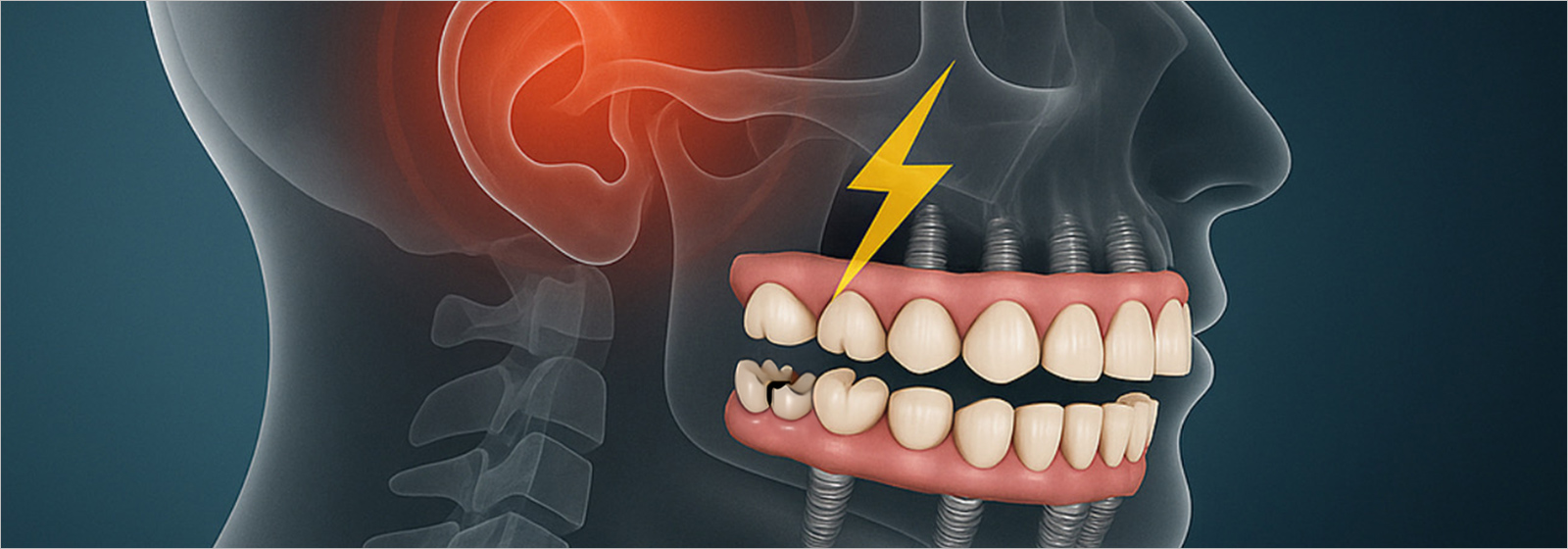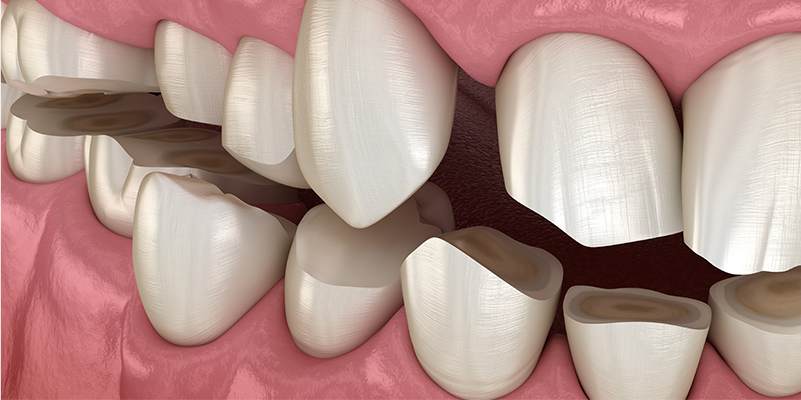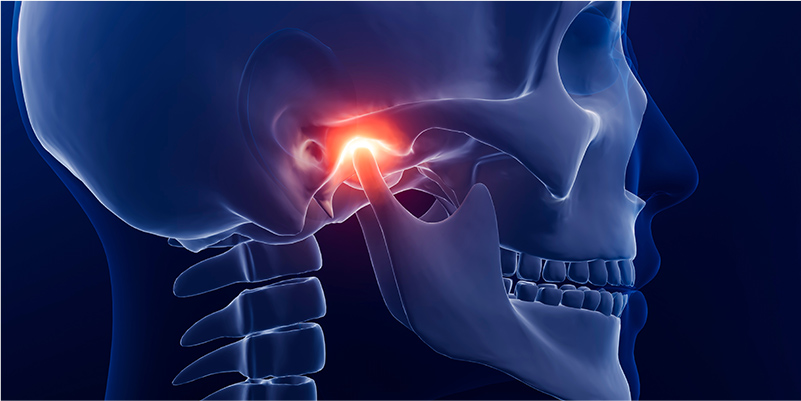You’ve invested in a full-mouth dental implant reconstruction — an incredible step toward restoring function, confidence, and a radiant smile. But for some patients, problems may arise after treatment: teeth begin to chip or break, implant screws or abutments fail, or unexplained discomfort emerges in the face, head, neck, or shoulder regions.
These complications are not a reflection of your dentist’s work. Rather, they are often the result of an orofacial orthopedic imbalance between your jaw joints (TMJs) and your bite — something only a specialist trained in this field can diagnose and correct.

UnderstandingThe Problem
Even when the bite feels like it 'fits,' a hidden misalignment between the teeth and the jaw joints can exist. This disharmony becomes most evident during deep sleep when the facial muscles are at their strongest. The body subconsciously grinds or clenches the teeth to remove interferences and bring the joints into their natural, stable position. For patients with full-arch restorations, this grinding can exert intense forces on the prosthetic teeth and supporting implants — far greater than what occurs during normal chewing.
This results in cracked or broken prosthetics, screw loosening, implant failure, or ongoing facial muscle pain and fatigue.
This Is Not Your Dentist’s Fault
Restorative dentists and implant surgeons do their absolute best to align the bite, function, and esthetics during treatment. However, orofacial orthopedic compensation is a specialized field of study that goes beyond traditional dental training. There are only six advanced post-graduate programs worldwide that teach this discipline. Dr. Shayesteh has completed training at the most prestigious of these and has helped countless patients find long-term comfort, balance, and protection for their implants.
Why Every Full-Mouth Implant Case
Needs TMJ Therapy
When your car gets brand-new tires, you don’t just drive off — you get a wheel alignment. Why? Because even the slightest misalignment can cause uneven wear, reduced performance, and long-term damage.
The same principle applies to your mouth. After a full-mouth implant reconstruction, your prosthetic teeth are like those new tires. They’re built to perform beautifully — but without aligning your jaw joints (TMJs), your bite may be grinding in all the wrong ways.
TMJ therapy acts as the essential “alignment” that ensures your bite and joints are working in harmony. Without it, even the best implant work can suffer under the stress of hidden dysfunction.
The Solution
TMJ Therapy with Dr. Shayesteh
Dr. Shayesteh offers non-invasive, gentle TMJ therapy designed specifically for post-implant patients. He provides a thorough evaluation of the joint–bite relationship and fabricates a custom orthopedic appliance called a FOSA (Face Orthopedic Stabilizing Appliance).
This device harmonizes the bite with the joint’s natural position, helping to:
Eliminate subconscious nighttime grinding
Reduce muscular strain and fatigue
Protect the prosthetic teeth and implants
Promote long-term comfort and stability
Scientific Evidence:Why This Matters
Bruxism Significantly
Increases Implant
Failure Risk
Bruxism — or nighttime teeth grinding — places extreme force on implant restorations. These forces are far greater than natural chewing and can damage prosthetics, loosen screws, and lead to implant failure.

Discrepancy Between
Occlusion and Joint
Position Leads to
Dysfunction
Just because your bite ‘feels right’ doesn’t mean it’s truly aligned. Imaging studies show many people have a measurable gap between where their teeth meet and where their jaw joints naturally rest. This discrepancy causes ongoing joint stress and instability.

Targeted TMJ Therapy
Enhances Implant
Longevity and
Patient Comfort
TMJ therapy — like orthopedic appliances — has been shown to reduce muscle strain, lessen pain,
and help maintain implant stability long-term.

Frequently
Asked Questions
(FAQ)
Will I need to replace my implants or prosthetic teeth?
In most cases, no. Dr. Shayesteh’s therapy is designed to protect and preserve your existing implant work — not replace it. The goal is to realign the joint–bite relationship to prevent future damage.
Is this treatment painful or invasive?
Not at all. This therapy uses a custom-fabricated orthopedic appliance (FOSA) that’s worn comfortably, typically at night. No injections, surgery, or drilling is required.
How long does treatment take?
Each patient is different, but many see relief within weeks. A full course of therapy typically spans several months, with periodic adjustments to fine-tune results.
Does insurance cover this?
Insurance may cover portions of the treatment, especially when associated with TMJ-related dysfunction. Our office will assist in checking your specific coverage and maximizing any available benefits.





